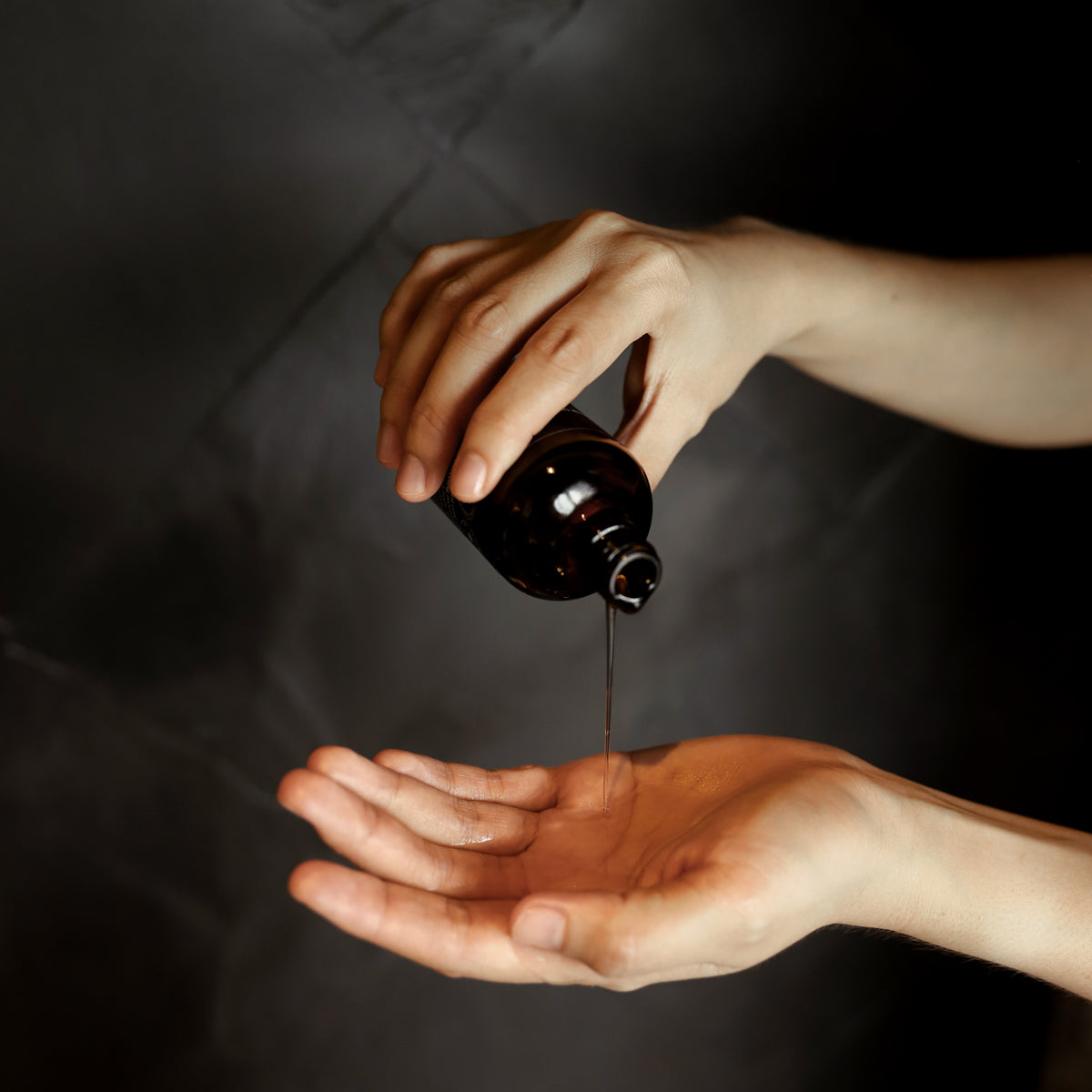
What are carrier oils?
Carrier oils are oils derived from the seeds or nuts of a plant. They differ from essentials oils with the latter being distilled from the aromatic components of a plant, like its flowers or roots. A carrier oil is required to “carry” the essential oils by way of dilution before you can use them safely on the body. As you now know, applying essential oils neat to the body is not recommended. They must be diluted in a base oil before you can use them safely on the body.
How do you choose a carrier oil? First, consider what you will use them for, whether for a skin moisturiser or for a soothing massage. Skin condition is another factor to help you decide which oil to use, some heavier oils like coconut oil are brilliant for dry skin but not so much for someone who is acne-prone. The last factor is that of smell. While some enjoy the tropical scent of coconut oil, others gravitate towards the sweet, nutty aroma of sweet almond oil.
With so many carrier oils available in the aromatherapy world, here’s a quick primer on 4 of the most common ones to get you acquainted.

Sweet Almond Oil
Sweet almonds are native to the Middle East and may have been cultivated as early as 4000 B.C. Its oil is rich in unsaturated fatty acids while containing high amounts of Vitamin E, making it a great healing moisturiser. According to the Ayurvedic system of thought, almond oil is best used for people who are vata- or pitta-dominant, people who have dry or sensitive skin.
Pair it with: Non-greasy and great for moisture retention, sweet almond oil is an excellent entry-level carrier oil for anyone new to aromatherapy. As it already has its own sweet, nutty scent, try mixing it with floral essential oils like rose (reduces stress, helps with menopausal and menstrual symptoms) or lavender (calming).

Jojoba Oil
Unlike the other oils on this list, jojoba oil (pronounced ho-ho-ba) is actually a liquid plant wax produced from the seed of the Simmondsia chinensis shrub, native to Southern Arizona, Southern California and North-Western Mexico. Jojoba oil is valued for its moisturising, antibacterial and oil-controlling qualities. It is also known for its shelf-life stability, being highly resistant to rancidity and high temperatures. Jojoba oil’s chemical composition most closely resembles the human sebum, making it an excellent carrier oil for face and skin. It is also non-comedogenic (does not clog pores), so for the acne-prone this may be among the safer carrier oils to use on the skin.
Pair it with: For a facial oil or for face massage, use jojoba oil with essential oils appropriate to your skin condition like peppermint (for antiseptic properties, dilute appropriately), tea tree (anti-acne) or german chamomile (for dry skin).

Coconut Oil
The main fatty acid that makes up coconut oil is lauric acid which is a powerful antimicrobial against some types of bacteria, fungi and viruses. Other benefits of coconut oil include being anti-inflammatory and an excellent skin moisturiser, making it one of the best carrier oils when diluting essential oils for body massage. Additionally, it also works well as a base oil for hair and scalp treatments. Due to its high fat content, however, it is not recommended for people with oily skin type, particularly on the face, as it could clog pores.
Pair it with: Choose a cold-pressed virgin Coconut Oil formulation with essential oils like lavender (calming and relieves pain), rosemary (anti-inflammatory), and sandalwood (alleviates muscular tension and inflammation).

Grapeseed Oil
Grapeseed oil is extracted from the by-product of the winemaking industry—grape seeds. Although much of the benefits of grapes do not remain in the oil, grapeseed oil still has very high amounts of Vitamin E and is also mildly astringent. Odourless and mild, it is suitable carrier oil for those with oily or acne-prone skin. On top of that, it also benefits the hair, being lighter than coconut or olive oil. While diluting essential oils for a grapeseed oil massage, be sure to choose the cold-pressed oil as it retains much of the oil’s beneficial properties, compared to the solvent extraction method which uses hexane and high levels of heat. The latter is more common but do not be lured by its lower price-point.
Pair it with: Essential oils beneficial to the skin like tea-tree (anti-bacterial), rose (scar-minimising and soothing), and grapefruit (anti-acne).
In conclusion, the choice of carrier oils depends on what you wish to do with it and factors to consider include its viscosity and how its own scent may combine with the essential oil of your choosing. Always choose cold-pressed or cold expeller pressed oil as they have been extracted without the addition of extra heat which would reduce the benefits of the oil. Carrier oils also need to be kept appropriately in a cool, dark place because unlike essential oils they will go rancid easily (with the exception of jojoba oil). Check the expiration dates often and when in doubt, always go for therapeutic grades of carrier oils.


